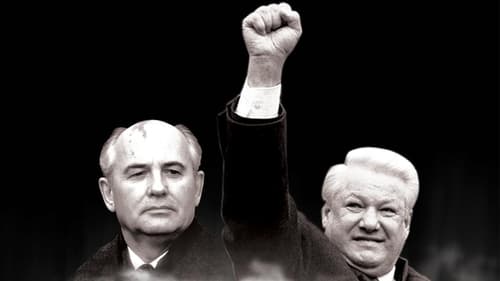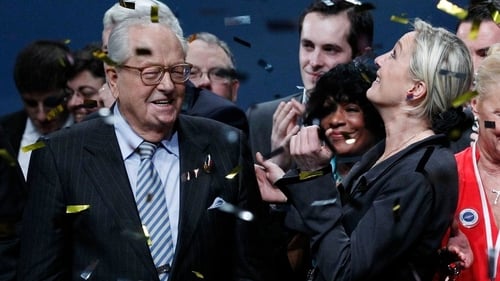Jean-Charles Deniau
Nacimiento : 1945-10-15, Rambouillet, France

Writer
Forty years after the abolition of the death penalty in France, voted on September 18, 1981, the guillotine remains in the collective imagination as the instrument of the death sentence. This machine, developed during the Revolution to render justice more equal, was presented as progress. Over time, opinion has been divided on the subject of the death penalty, the guillotine becoming the object of man's cruelty, a remnant of an archaic way of dispensing justice and fuelling the many debates around the death penalty and its abolition.

Director
Forty years after the abolition of the death penalty in France, voted on September 18, 1981, the guillotine remains in the collective imagination as the instrument of the death sentence. This machine, developed during the Revolution to render justice more equal, was presented as progress. Over time, opinion has been divided on the subject of the death penalty, the guillotine becoming the object of man's cruelty, a remnant of an archaic way of dispensing justice and fuelling the many debates around the death penalty and its abolition.

Director

Writer

Director

Director

Director
Interwoven portraits of Anatoli Karpov and Garry Kasparov, whose 25-year bitter rivalry accompanied the fall of the USSR. The story of a duel between two chess giants, fighting a personal war in a world gone to ruin. This battle of black and white was more than a face-off over a chessboard. Part psychological drama, part political thriller, the film brings to life their hostilities, nested like Russian dolls. Karpov vs. Kasparov represents the battle between the faltering empire and the young liberals several steps ahead of the game, checkmating the old guard. Or how two stories – the societal one and the personal one – started out separately and ended up superimposed, twining together into one tale.

Writer

Director

Director
La inestabilidad económica y las intrigas en el Partido Comunista (PCUS) provocaron la caída del mayor imperio del siglo XX. Mijaíl Gorbachov no pudo evitarlo con su "perestroika". Corría noviembre de 1989 y caía el Muro de Berlín. Dos años después, los ciudadanos derribaban las estatuas de Lenin y el gesto confirmó la desintegración de la Unión Soviética. Dos años fatídicos para un debilitado Mijaíl Gorbachov, Secretario General del PCUS desde 1985, que se había empeñado en instaurar reformas arriesgadas y radicales, de consecuencias nefastas para la URSS.En política exterior, Gorbachov levantó el "telón de acero" y en política interior inició la democratización del país, lanzando dos conceptos revolucionarios: glasnost o libertad de expresión y perestroika o reforma económica.

Writer
La inestabilidad económica y las intrigas en el Partido Comunista (PCUS) provocaron la caída del mayor imperio del siglo XX. Mijaíl Gorbachov no pudo evitarlo con su "perestroika". Corría noviembre de 1989 y caía el Muro de Berlín. Dos años después, los ciudadanos derribaban las estatuas de Lenin y el gesto confirmó la desintegración de la Unión Soviética. Dos años fatídicos para un debilitado Mijaíl Gorbachov, Secretario General del PCUS desde 1985, que se había empeñado en instaurar reformas arriesgadas y radicales, de consecuencias nefastas para la URSS.En política exterior, Gorbachov levantó el "telón de acero" y en política interior inició la democratización del país, lanzando dos conceptos revolucionarios: glasnost o libertad de expresión y perestroika o reforma económica.

Director

Director
In the wake of "Mondovino", this film offers new research on the world of cheese, through a work of investigation and discovery in various parts of France, but also Italy and the United States. It highlights two clashing worlds: on one side the taste of defenders and diversity, the other multinational companies, supermarkets and proponents of food globalization. The "stinky cheese" has become an iconic element in the debate on the French exception, globalization, industrial food and the environment.

Director

Director
Documentary film that describes the September 1999 Russian apartment bombings as a terrorism act committed by Russian state security services. Based on book "Blowing Up Russia: Terror from Within" by Yuri Felshtinsky and Alexander Litvinenko.

Director
A scientist wants to recover some mammoth DNA to clone a live mammoth. So he finds a buried mammoth in the vast, rock hard permafrost of Siberia, digs it out in the middle of a blizzard and flies it home. Of course he needed a little help. So he befriended an arctic nomad who knows ever rill, rock, pond and stream in the entire region. As background to the quest, National Geographic relates the migratory history of the mammoth family.







